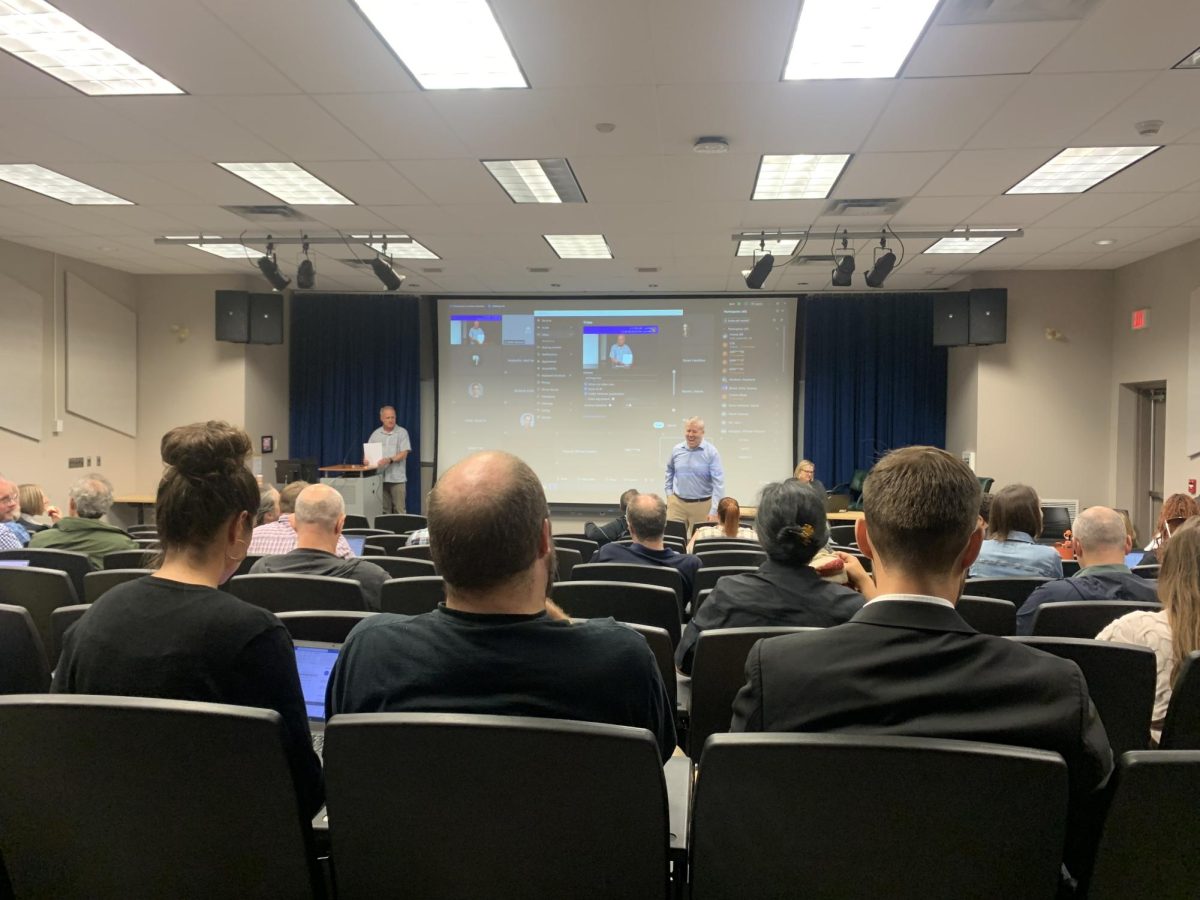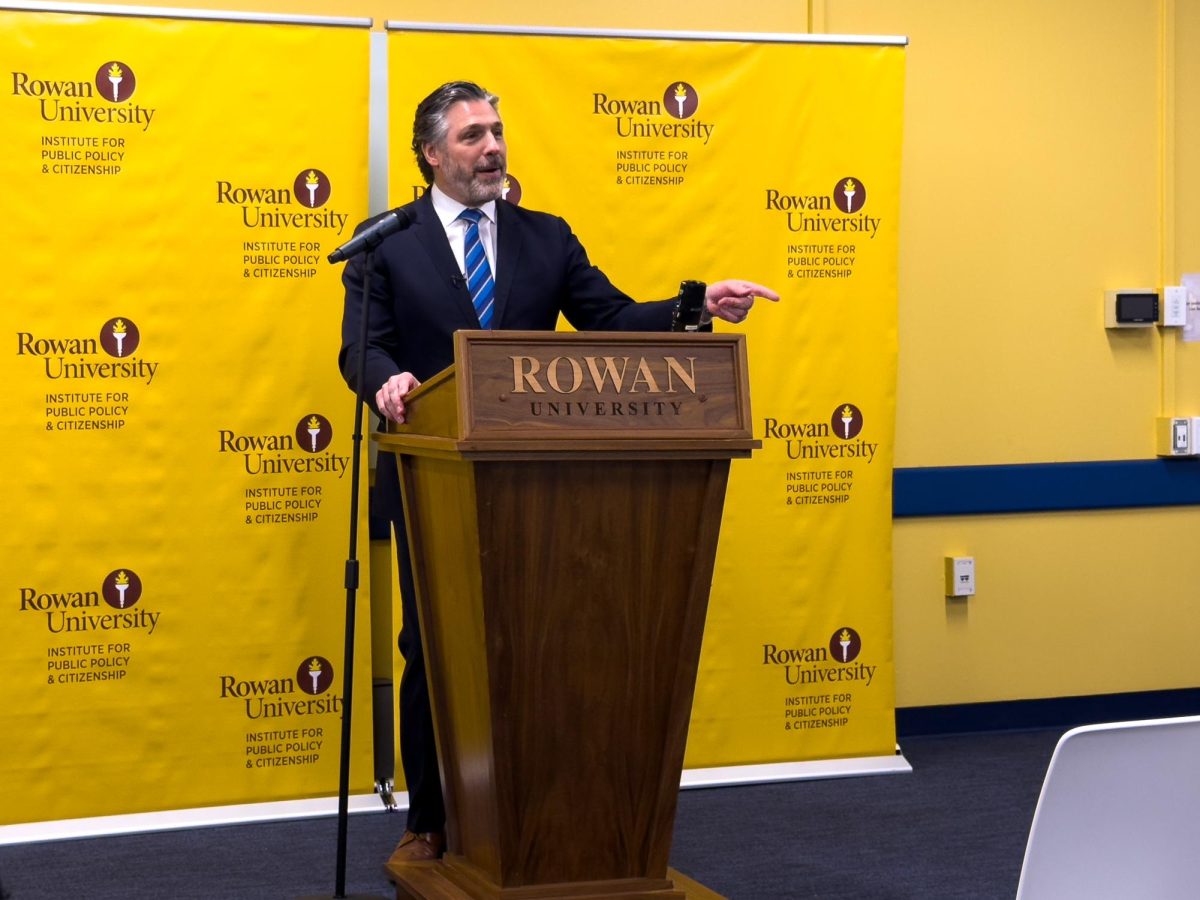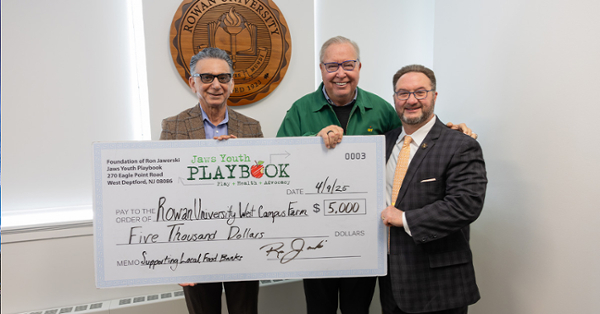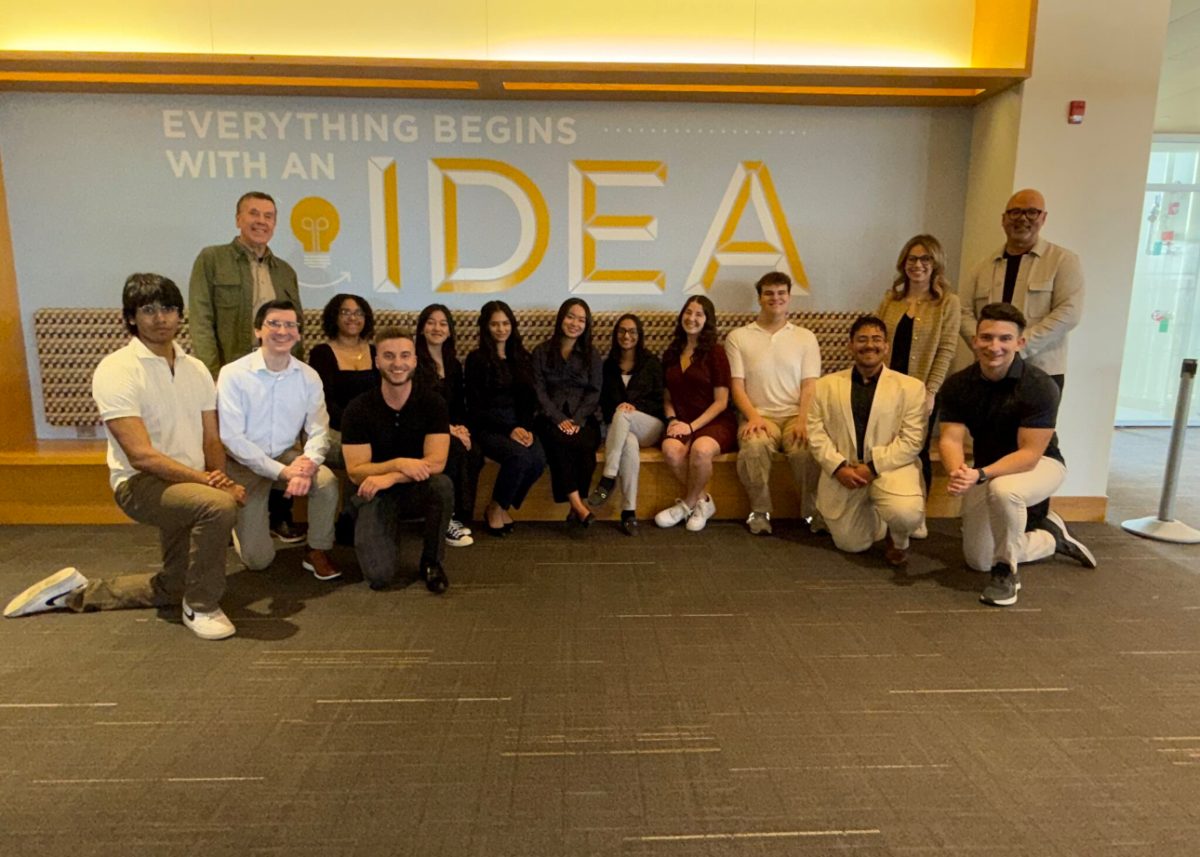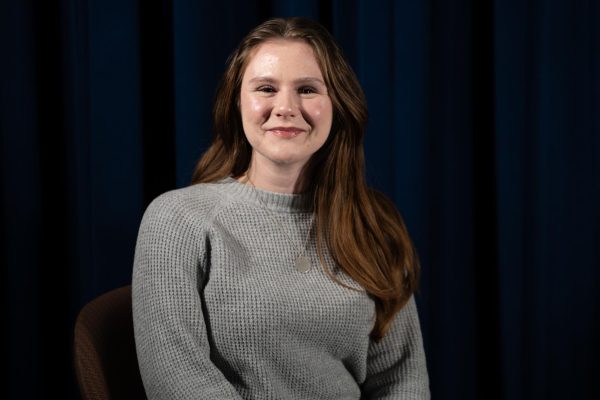Last Friday, Sept. 27, the first University Senate meeting took place in King Auditorium where faculty, staff, and advisors spoke about academic and personnel policies such as tech resources and AI issues. The biggest topic of discussion, however, was the reorganization of Rowan Global to expand and create fully online degree programs.
To grow Rowan Online, the new division for online programs through Rowan Global, the university is working with McKinsey & Company, a consulting firm, to expand online programs.
The meeting began with an open session from President Ali Houshmand and Provost and SVP of Academic Affairs Tony Lowman. President Houshmand focused on the financial aspects of the expansion of Rowan Global into online courses. He explained that when he started at Rowan, one of his biggest goals was to create a nontraditional revenue generator, and has generated $600 million during his time here. According to Houshmand, Rowan Global had a profit of $43 million last year.
“This is why no one here got furloughed during peak Covid. We are a wealthy university. We know how to manage money. We’re very good at it,” said Houshmand.
Houshmand also explained that Rowan Online is “fully cost-centered.” This caused some concerns from attendees about whether their in-person courses are at risk of being eliminated.
“We are not taking away face-to-face programs. If you are running a face-to-face program and a dean says, ‘This would make a great online program,’ you should take that as a compliment,” said Lowman.
Houshmand and Lowman reiterated multiple times that in-person classes will not be taken away and this will not harm current professors.
“We’re in a great spot but we don’t sit on our hands, we hit the gas…what can we put online? How do we make thoughtful decisions about what’s online? How do we do it efficiently as a revenue driver?” said Lowman.
An attendee of the meeting asked what would happen to current online courses. Lowman and Houshmand explained that faculty will have full control over the courses, as opposed to the way they operate under Rowan Global as it stands now. For instance, some online courses have not been edited or changed in numerous years and feature outdated slideshows, which were referenced a few times. With Rowan Online, faculty will have complete control over the course.
Many concerns were raised over what will happen to current Rowan Global employees.
“There will not be a single person fired for financial reasons. The day that needs to happen I will fire myself,” said Houshmand.
Rowan is currently classified as an R2 doctoral university with high research activity, according to the Carnegie Classification of Institutes of Higher Education. An attendee asked what would set Rowan apart from other high research universities that tried to implement similar programs to Rowan Online and failed. Houshmand’s reasoning was that Rowan Online has been homegrown and organic, compared to other universities that had to “buy their way into this space.”
The topic of partnering with other universities was brought up, which was one of the items on the agenda. Thomas Edison State University is located in Trenton, NJ, and there have been conversations with the administration about potentially acquiring them.
Houshmand did not confirm nor deny that this was in the works.
Bill Freind, University Senate president, touched on the creation of an AI task force to determine what ways AI can and cannot be used on campus.
Other issues brought up by attendees include staffing issues at Campbell Library and the near dissolvement of Career Services.
The next University Senate meeting will be Oct. 25 at 2 p.m. via Zoom.
For questions/comments/concerns, dm us on Instagram @thewhitatrowan, or email us at [email protected]

























































































































































!["Working with [Dr. Lynch] is always a learning experience for me. She is a treasure,” said Thomas. - Staff Writer / Kacie Scibilia](https://thewhitonline.com/wp-content/uploads/2025/04/choir-1-1200x694.jpg)









































